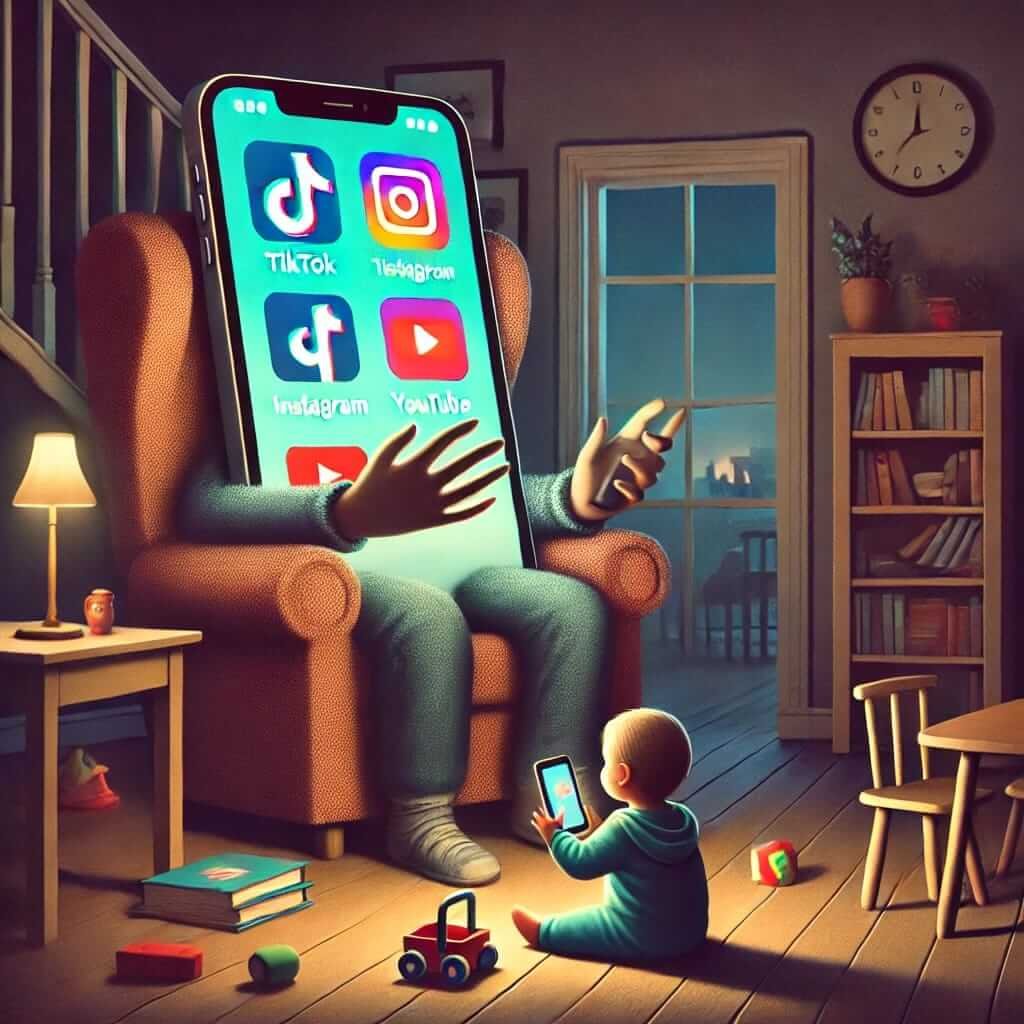Remember when TV used to be the “lazy babysitter” parents relied on for a break? Well, move over, cartoons—social media is now the sneaky babysitter raising an entire generation, and it’s not reading bedtime stories. Instead, it’s feeding kids a nonstop diet of unrealistic beauty standards, fast-paced dopamine hits, and a reality where self-worth is measured in likes.
Hey, parents! Quick questions—
When was the last time your kid made it through one full meal without checking their phone?
Did they pause mid-bite to record their food for an “aesthetic” Instagram story?
Did they burst into a TikTok dance at the dinner table?
Or even worse—did they act like you weren’t even there, too engrossed in their screen to acknowledge you?
If you just let out a sigh, then welcome to the Digital Parenting Olympics! In this challenge, it’s no longer just about raising happy, well-adjusted kids. Instead, it’s about staying one step ahead of the social media monster before it completely takes over their lives.
Let’s be real—social media is everywhere. From 2-year-olds watching coco melon to 8-year-olds scrolling through TikTok to teenagers glued to Instagram, today’s kids are living in a digital world where likes define self-worth, filters create fake realities, and fast-paced content rewires brains faster than a coding boot camp.
But here’s the million-dollar question: What is all this screen time actually doing to kids’ mental health? Spoiler alert—it’s not good. And if you’re one of those gentle parenting advocates thinking, “Oh, I’ll just guide my child with love and let them explore the world,” I hate to break it to you—social media doesn’t play fair.
Let’s dive into why.
Did you know the average teen spends over 7 hours a day glued to a screen? And no, that’s not counting school-related activities. It’s no surprise that mental health issues among kids and teens have skyrocketed. According to a 2023 study from the American Psychological Association, social media use is directly linked to increased rates of anxiety, depression, and self-esteem issues. Here’s why:
1. The Confidence Crisis: Social Media’s Silent Killer
Remember when kids used to compare themselves to the cool kid in class? Now they’re comparing themselves to millions of polished, curated, and sometimes completely fake influencers.
Here’s the problem:
Filters & AI Edit Apps – Kids aren’t just seeing regular faces anymore. They’re seeing flawless, airbrushed, perfectly contoured versions of people who don’t even look like that in real life! This creates unrealistic beauty standards that make kids feel inadequate.
Like & Comment Culture – The number of likes on a post dictates self-worth. A teen posts a selfie, gets 10 likes, and suddenly believes, “I must not be pretty enough.” Meanwhile, influencers with millions of followers make them feel invisible.
Constant Comparison – Ever heard of the term “highlight reel”? That’s exactly what social media is. It’s not real life, but kids don’t understand that. They see someone on a vacation in Paris at 14 and wonder why they’re stuck at home doing algebra.
The result?
A skyrocketing confidence crisis, increased cases of depression, and a generation that can’t see their own worth unless a screen tells them they’re good enough.
Let’s put it into perspective: Imagine if every time you looked in the mirror, a voice whispered, “Not good enough. Try harder.” That’s social media for kids, but it’s not a whisper—it’s a 24/7 blaring alarm.
Still think a gentle pep talk will fix it?
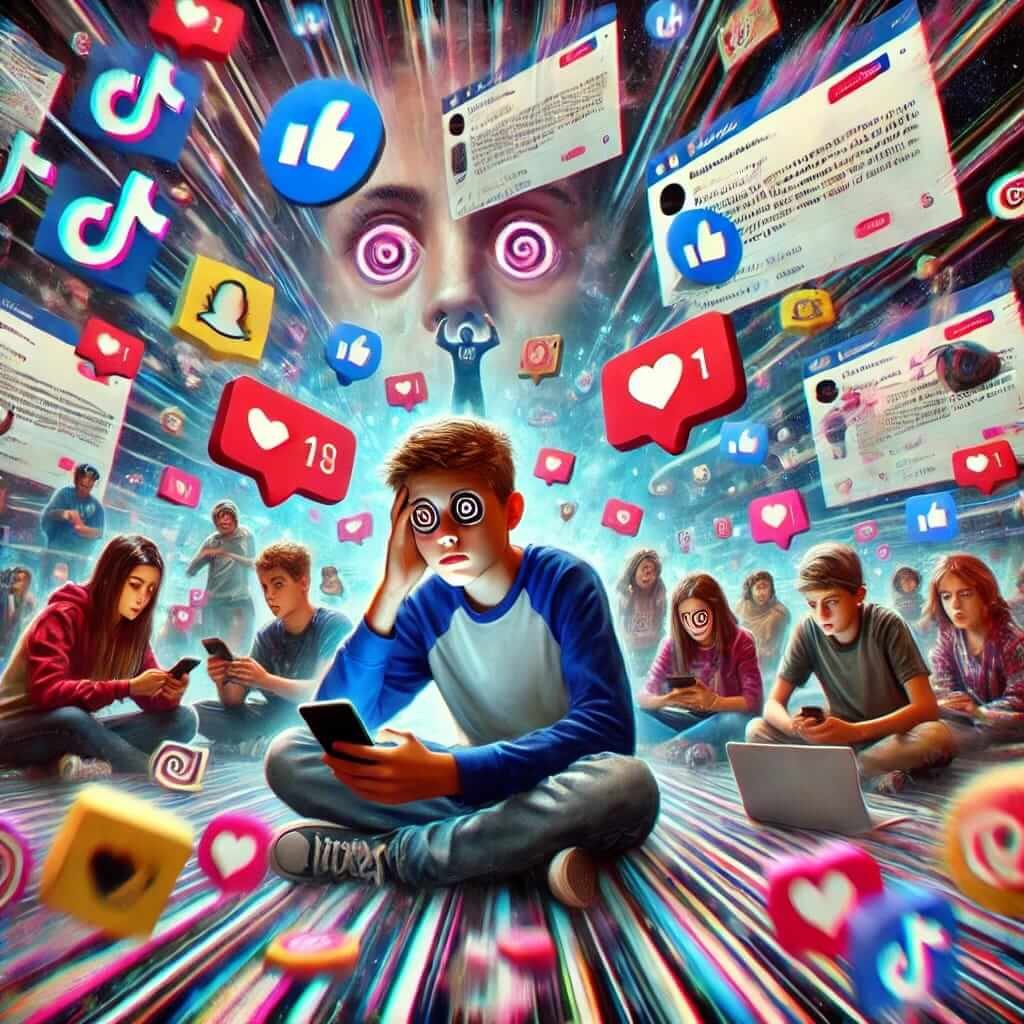
2. Fast-Paced Reels & The Brain Rewiring Nightmare
TikTok, Instagram Reels, YouTube Shorts—short-form content is crack for the brain. These apps work exactly like slot machines in a casino: Every swipe = a new hit of dopamine, Every like = a mini adrenaline rush, Every viral video = a craving for more.
Ever tried talking to your kid, only to realize they’re mentally somewhere else?
One-second boredom is unacceptable. Instead of waiting for anything, kids instantly swipe to something better. Reading? Too slow. They’d rather watch a 10-second video explaining an entire book. Sitting still for five minutes? Impossible. Their brains crave constant stimulation.
The human brain isn’t built for this kind of overstimulation, especially in kids. Their attention spans are shrinking, their ability to focus is plummeting, and they now expect instant gratification in everything—homework, relationships, and even friendships.
Studies show that fast-moving content like TikTok hijacks the brain’s reward system, making regular activities (like reading, studying, or even playing outside) boring in comparison. It is why kids can watch 500 reels in an hour but can’t sit through a 10-minute lesson without checking their phone.
3. Vlogging & “Main Character Syndrome”
Have you noticed kids are obsessed with documenting everything? Welcome to the Vlog Generation.
Every trip to Starbucks is filmed, every dance move is posted, and each moment of their day is scripted for content. All conversations are edited in their heads for a perfect comeback later. Why? because social media has turned life into a performance.
Think about it:
If a tree falls in the forest and no one records it… did it even happen?
If a moment isn’t “Instagram-worthy,” does it even matter?
While creativity is great, there’s a dark side to this:
Kids stop living in the moment. Instead of enjoying experiences, they’re too busy thinking about how they’ll look online. Kids are obsessed with being seen. When life becomes about views, likes, and engagement, real moments lose their meaning. They develop a need for constant validation. If a video doesn’t perform well, their mood tanks. They create a fake version of their life. Many kids feel pressured to make their lives look “cool” online, leading to a disconnect between their real self and their online self.
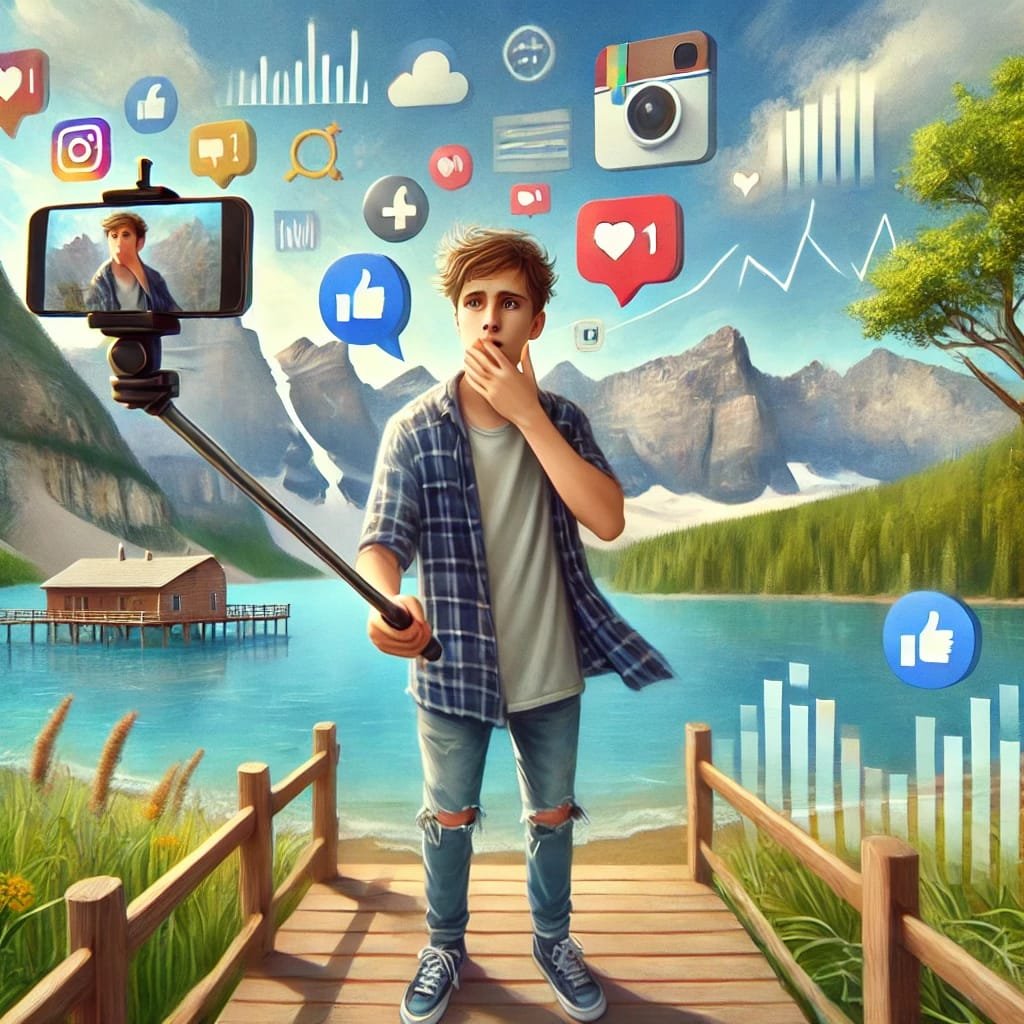
4. False Coverage & The Echo Chamber Effect
One of the biggest risks of social media is the spread of misinformation and the creation of echo chambers. Many kids rely on influencers for their news instead of credible sources, making them more susceptible to false narratives about relationships, success, and health. This can lead them to follow harmful trends without questioning the consequences. Even more concerning, Social media algorithms reinforce their existing beliefs by constantly showing similar content, preventing them from considering different perspectives. As a result, critical thinking skills decline, and their understanding of the world becomes dangerously one-sided.

5. Why Gentle Parenting Won’t Fix This
Many parents believe social media is just how kids stay connected nowadays. And while there’s some truth to that, we have to ask: At what cost? If something is damaging their self-esteem, attention span, and emotional well-being, is it really connection—or is it consumption?
Now, I know some parents believe gentle parenting is the answer. I get it—gentle parenting is about understanding, guiding, and letting kids explore at their own pace. But social media doesn’t play by those rules.
Gentle parenting says, “Let them make mistakes and learn from them.”
Social media says, “One mistake, will go viral and haunt them forever.”
Here’s the harsh reality:
Social media doesn’t care how much you love your child. You can be the most understanding parent in the world, but social media is a highly addictive, multi-billion-dollar industry designed to manipulate young minds. No amount of gentle guidance will stop the neural rewiring, confidence erosion, and psychological conditioning happening behind that screen. Social media is raising kids faster than parents can keep up.
Gentle parenting alone isn’t enough. What kids need is firm boundaries, digital detoxes, and real-life engagement.
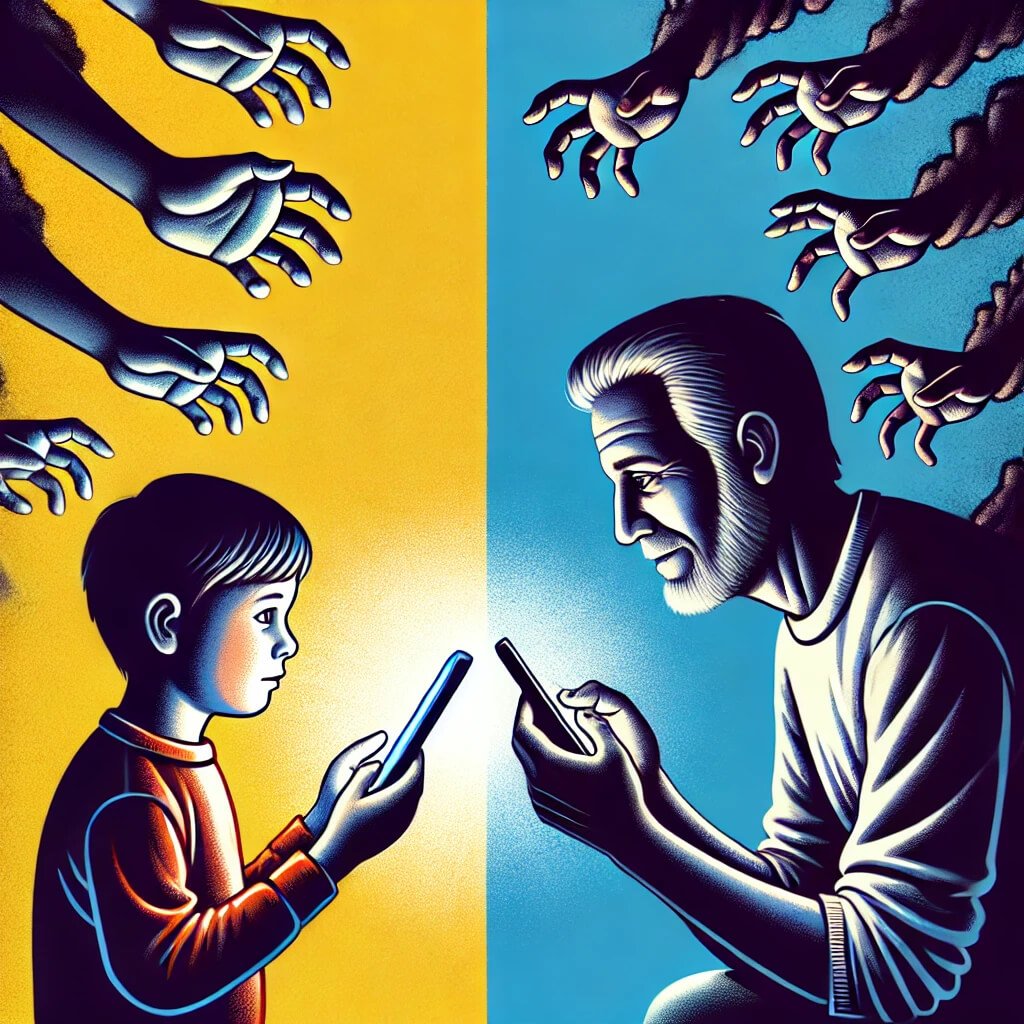
So, What Can Parents Do?
Let’s be clear: social media isn’t all bad. In fact, when used correctly, it can be a tool for creativity, learning, and self-expression. The problem? Most kids aren’t using it wisely.
The goal isn’t to ban social media completely—it’s to teach kids how to control it, rather than letting it control them.
1. Limit Social Media Time – Use parental controls, screen-time limits, and make “no-phone zones” at home. Dinner table? No phones. Family movie night? No phones. Conversations? No phones. No phones especially before bed.
2. Encourage Real-Life Activities – Sports, music, art, outdoor play, actual human conversations, stories—anything that gets kids off their screens. The more they love real life, the less they need the digital version.
3. Teach Media Literacy – Help kids recognize fake news, unrealistic beauty standards, and the dangers of comparison.
4. Set the Example – If you’re scrolling endlessly, your kids will too. Model the behavior you want to see.
5. Have Honest Conversations – Instead of banning social media outright, talk about the psychological effects. Make them aware of how algorithms manipulate them. Filters lie. Highlight reels aren’t real life. Talk about it.
6. Get Comfortable Saying ‘No’— Sometimes, kids need rules. You’re their parent, not their “cool best friend“.
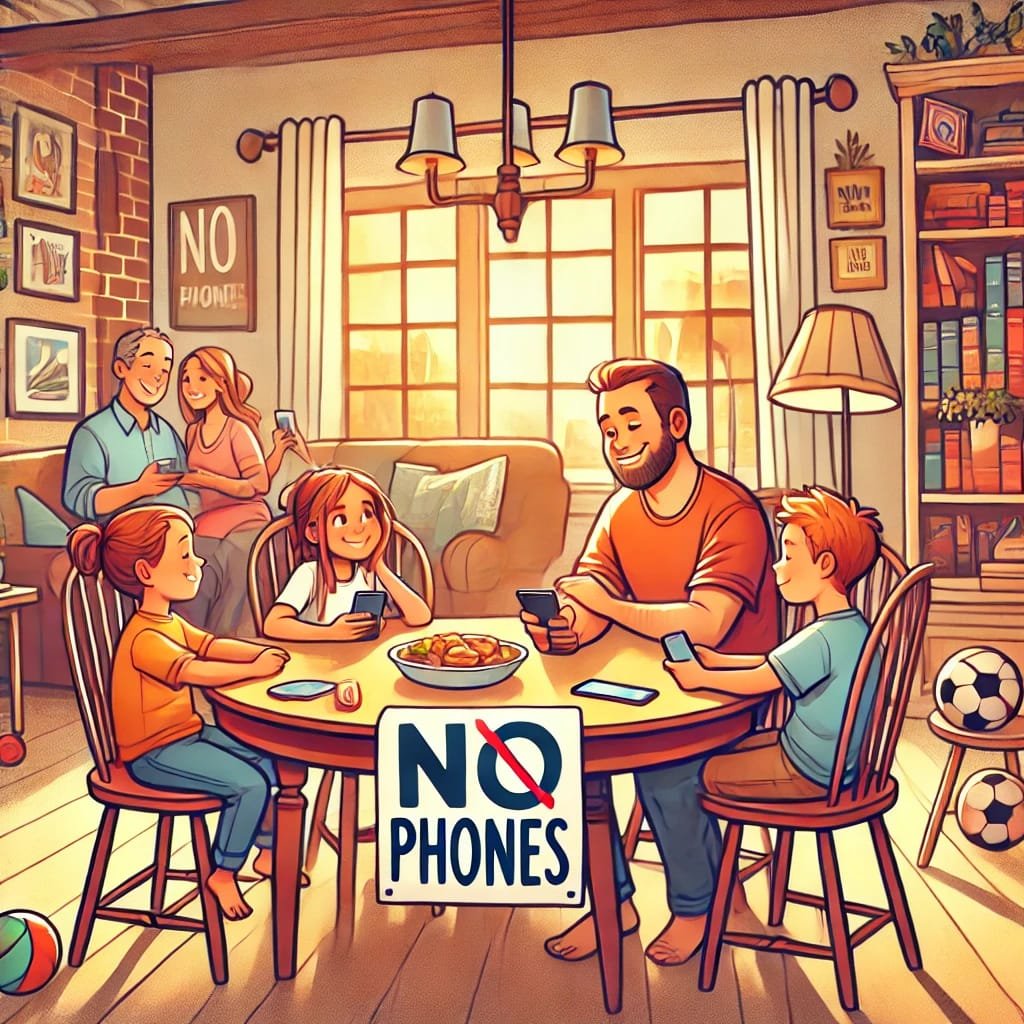
Final Thoughts
Social media is shaping an entire generation—but parents still have the power to guide their kids through it. It isn’t just a fun distraction—it’s a powerful force shaping kids’ brains, confidence, and mental health.
Here’s a challenge—spend one day observing your kid’s social media habits.
How often do they check their phone?
How do they react when they don’t get enough likes?
Can they sit through a full conversation without reaching for their device?
So, parents— Your kids need boundaries, awareness, and real-life experiences to counteract the effects of the digital world. Because if we don’t step in now, social media will raise them for us.
And trust me—that’s not a risk worth taking.
If their screen time is controlling them, it’s time for a change. And that change starts with you.
Let’s take back control—one digital detox at a time.
One of the best ways to support this is by encouraging critical thinking from an early age. Want to dive deeper into this topic? Check out the blog post on Empowering Kids: Teaching Them How to Think, Not What to Think for practical tips on raising thoughtful and independent-minded children.
Subscribe and Never Miss a Motivational Boost !!

